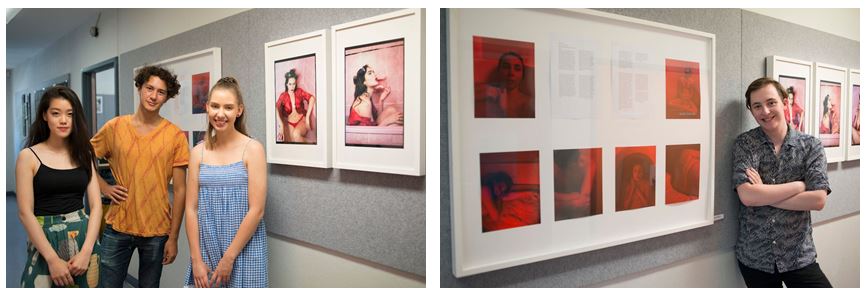Photography (Traditional & Digital) (T/A/M)
Photography is a powerful social, vocational, creative and technical tool. Society in the new century is becoming ever more reliant on visual communication, which requires greater discrimination in critically evaluating images, and greater skills in producing and disseminating images. Specific skills in visual analysis and production are developed through photography, as well as a broad range of other skills relevant to the lives and careers of students.
Photography provides opportunities, through a differentiated curriculum, to challenge students with a range of abilities and learning styles – from the academic and gifted to students with special needs – to achieve their potential. Photography encourages students to map potential pathways from school to tertiary education and/or industry. The visual language of photography is an excellent way for students from a variety of backgrounds to come together to explore their identities and their lives. It is recommended the courses are studied sequentially and may be taken as a minor, major, major/minor and double major. The Digital Photography courses run concurrently with the Photography courses allowing for a double major. There are no prerequisites for either course.
Unit Description
Units are offered as either half-standard (0·5) and/or standard (1·0) units as indicated against each unit.
Photography
Photography Applications A
Concentrates on achieving a basic standard of photographic technique using SLR cameras, processing and printing black and white images in a conventional darkroom. This unit is a detailed orientation to the college photographic facilities.
Art Photography
This unit explores photography as art. The students will build a folio of work based on a foundation of conceptual ideas. The students will use a variety of tools including scanners, digital cameras, unusual camera formats, inkjet printers, film based alternative processes, and the photographic studio. Students have an opportunity to engage in discussions concerning Australian and International photographic art.
Photography Applications B
Photographic Applications will allow students to complete fine art black and white prints on specific themes. They will interpret photography as a visual medium. They will further their knowledge of the camera and the darkroom and explore ideas such as split filtering, masking and toning as well as undertaking a study of individual photographers.
Contemporary Photography A
Students learn the fundamentals of controlling light in photography. They will learn how to use studio flash in a studio environment, how to build and use a daylight studio and how to control light using alternative light sources such as reflectors, torches, windows, headlights, and candles. Students have an opportunity to discuss contemporary photographic practice.
Photography Negotiated Study
Students will apply the skills they have learnt to produce images with specific image design parameters. They will use a variety of tools to produce the images including digital SLR cameras, film and flat bet scanners, alternative cameras-including film cameras and storage devices. They will be exposed to advanced blending and montage techniques and printing solutions.
Contemporary Photography B
Students continue on with the fundamentals of controlling light in photography. They will expand upon their understanding of using controlled lighting for desired effects in and will study and discuss contemporary photographic practice and how it influences their own photographic practice.
Digital Photography
Digital Photography
An introduction and context for studying digital photography. Scanning, resolution and camera theory and practice, image manipulation and printing. They will be introduced to Adobe Photoshop and will investigate the basic concepts of the digital environment including image size, capture devices, image, screen and printer resolution.
Digital Photography Practice
Students will explore scanning and resolution theory and practice in greater detail, image manipulation, printing possibilities, industry practice and a range of applications concerning digital media. They will be exposed to digital SLR cameras and become proficient in their use and the archiving of images.
Photography Practice
Students will apply the skills they have learnt to produce images with specific image design parameters. They will use a variety of tools to produce the images including digital SLR cameras, film and flat bet scanners and inkjet printers. They will be exposed to digital camera techniques including aperture, shutter, ISO, colour balance and file types.
Photography Communications
Students will be exploring advanced lighting, camera raw and photoshop software, colour management, digital file types including raw, jpeg and Tiff, post processing, and archiving. They will be working on creating contemporary digital photographs studying the work of a number of digital photography artists. Students will investigate contemporary art practice where digital technology is the preferred medium. Alternative presentation methods will be explored. Students will test a variety of substrates, apply colour and black and white techniques, use appropriate capture technology and produce exhibition quality artwork.
Photography Negotiated Study
Students will apply the skills they have learnt to produce images with specific image design parameters. They will use a variety of tools to produce the images including digital SLR cameras, film and flat bet scanners, alternative cameras-including film cameras and storage devices. They will be exposed to advanced blending and montage techniques and printing solutions.
Assessment
Folio of work and/or exhibition prints, approximately 70%, research approximately 30%.

